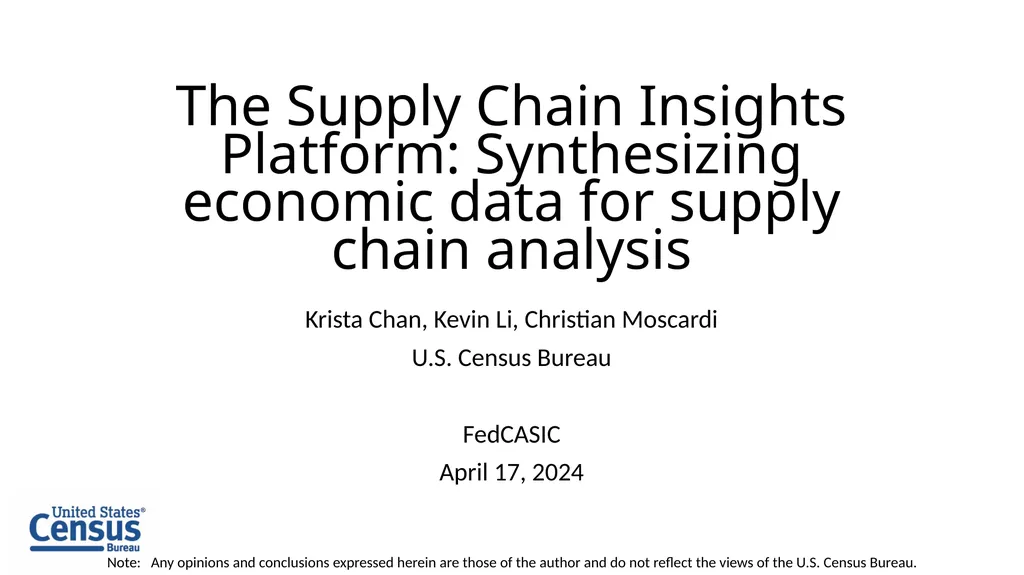
Author : danika-pritchard | Published Date : 2025-05-28
Description: The Supply Chain Insights Platform: Synthesizing economic data for supply chain analysis Krista Chan, Kevin Li, Christian Moscardi U.S. Census Bureau FedCASIC April 17, 2024 Note: Any opinions and conclusions expressed herein are those ofDownload Presentation The PPT/PDF document "" is the property of its rightful owner. Permission is granted to download and print the materials on this website for personal, non-commercial use only, and to display it on your personal computer provided you do not modify the materials and that you retain all copyright notices contained in the materials. By downloading content from our website, you accept the terms of this agreement.
Here is the link to download the presentation.
"The Supply Chain Insights Platform: Synthesizing"The content belongs to its owner. You may download and print it for personal use, without modification, and keep all copyright notices. By downloading, you agree to these terms.













